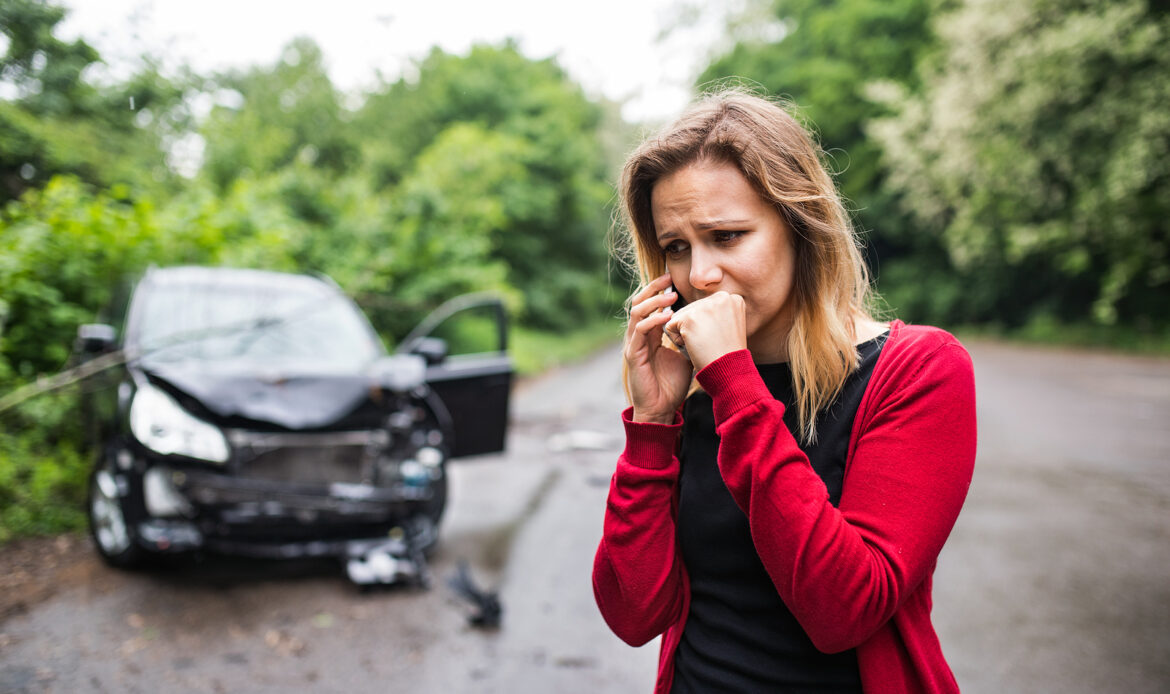Initial Legal Steps to Take Following a Car Accident
Being involved in a car accident can be disorienting and stressful. Understanding the steps to take afterward is crucial. These actions safeguard your rights, prioritize your safety, and establish the foundation for successfully resolving a potential legal case. If you have any concerns or questions about your rights and responsibilities after a car accident, seek guidance from a qualified legal professional.
Ensure Safety
The first priority after an accident is to ensure your safety, that of your passengers, and that of others involved. Before exiting your vehicle, take a moment to assess the surroundings. If it’s safe, exit the vehicle and move to a secure location away from potential dangers. Turn on your vehicle’s hazard lights to alert other drivers to the accident scene. This can help prevent further collisions and provide a visual warning to approaching vehicles.
Check for Injuries
Assess yourself and others for injuries. Call emergency services immediately if anyone is injured, no matter how minor the injuries may seem. Paramedics can provide on-site medical assistance and transport injured individuals to the hospital for further evaluation and treatment. Even if injuries seem minor or non-existent, it’s essential to encourage everyone involved in the accident to undergo a professional medical evaluation. Some injuries, such as concussions or internal bleeding, may not present obvious symptoms initially but can have serious consequences if left untreated.
Call the Police
Contact law enforcement to report the accident. In many jurisdictions, it is legally required to report a car accident to the police, especially if the accident resulted in injuries or significant property damage. Failure to report an accident can result in penalties or fines. Police officers are trained to handle accident scenes and can help ensure the safety of everyone involved. They can direct traffic, assist injured individuals, and take steps to prevent further accidents or hazards at the scene. The police will create an official report describing the details of the incident. This report includes information such as the accident’s date, time, and location, a description of the vehicles involved, statements from drivers and witnesses, and any citations issued. A police report can be valuable when working with insurance companies or in legal proceedings.
Exchange Information
Exchanging contact and insurance information with the other drivers involved in an accident is important for facilitating the claims process and ensuring all parties can communicate effectively with their insurance companies. Collect names, phone numbers, addresses, driver’s license numbers, license plate numbers, and insurance policy details.
Document the Scene
Document the scene by taking photographs that include the vehicles involved, their positions, and any visible damage. Also, photograph any relevant road markings, signage, or environmental conditions that may have contributed to the accident. This documentation provides evidence for insurance claims and legal purposes.
Take Witness Information
If there are any witnesses to the accident, ask if they would be willing to provide a statement. Encourage them to include specific details such as the sequence of events, the actions of the drivers involved, and any factors that may have contributed to the accident. Use your phone to record their statements or write them down verbatim. Ask witnesses for their contact information, including their full name, phone number, and email address. Witnesses can provide valuable statements and corroborate accident details during the claims process or legal proceedings.
Avoid Admitting Fault
Refrain from admitting fault or assigning blame at the scene, even if you believe you were responsible. Determining fault in a car accident is a complicated process that often involves multiple factors, including traffic laws, road conditions, weather conditions, and the actions of all parties involved. Fault determination is typically done by insurance companies and legal authorities based on evidence and applicable laws. Admitting fault prematurely can undermine your ability to present a strong defense and may result in unfair liability assignments.
Notify Your Insurance Company
Notify your insurance company about the accident and provide them with all the relevant details. Be truthful and cooperative when recounting the incident to your insurer. They will guide you through the claims process and may require additional documentation or evidence to support your claim.
Follow Up and Maintain Documentation
If necessary, follow up with your insurance company, healthcare providers, and legal representation to ensure your case progresses smoothly. Keep thorough records of all communications, repair estimates, medical bills, and other relevant documents related to the accident. These records serve to support your insurance claim and any potential legal action.
Consider Legal Assistance
You may want to consult a personal injury attorney if the accident resulted in significant injuries, property damage, or disputes over fault. A personal injury attorney can ensure you understand your rights, help navigate the complex legal process, and advocate for your best interests. Providing legal representation and guidance, attorneys offer peace of mind during a stressful time by protecting your legal rights during the claims process or potential litigation. If you’re unsure whether to seek legal assistance, many attorneys offer free case consultations to discuss your case and will provide personalized advice based on your circumstances.
Have You Been Involved in a Car Accident? Born & McCaffrey, PC Provide Experienced Guidance Following an Accident
Have you or a loved one been involved in a car accident? Don’t suffer in silence or accept less than you deserve from insurance companies. At Born & McCaffrey, PC, our experienced team specializes in representing victims of car accidents and fighting for the compensation they deserve. Contact us today at 303-800-6996 to schedule a free case consultation. Let us handle the legal complexities with no fee until we win so you can focus on your recovery.

